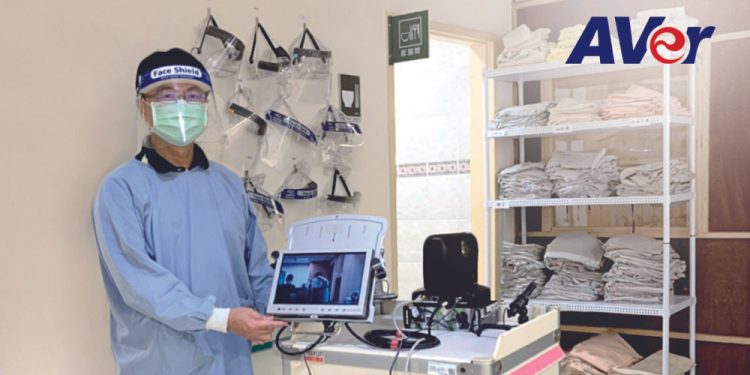AVer Information Inc. (TWSE: 3669), an award-winning provider of business communication and classroom technology, is proud to announce that one of its latest USB video conferencing cameras had helped physicians give remote medical care to Taiwanese athletes in Tokyo, Japan, during the world’s largest international sports event this summer. Back in Taiwan, AVer’s PTZ auto tracking camera technology, enabled frontline medical staff to provide remote medical care during the COVID-19 pandemic.
This summer the Chang Gung Memorial Hospital Medical Team accompanied Taiwanese athletes to Tokyo, Japan, to compete in the world’s largest international sports event. The team’s doctors used AVer’s CAM340+ USB video conferencing camera to transmit live footage of the athletes to other experts in Taiwan. AVer camera technology allowed the doctors to quickly and remotely evaluate the players’ health status and deliver follow-up treatment. This telemedicine setup lets the athletes avoid going to the medical center in Tokyo, reducing their risk of exposure to COVID-19.
In another development, New Taipei City’s Far Eastern Memorial Hospital is the hospital dealing with Taiwan’s most severe COVID-19 cases. The Artificial Intelligence Center of the hospital’s Medical Research Department has been at the center of the pandemic since May. Through cooperation with AVer, the hospital has created isolated care: The remote medical staff uses the Internet to control the camera and clearly view the patient’s physiological symptoms. After collecting information, the medical staff put on protective clothing and enter the isolation ward to care for the patient. This setup lets medical staff avoid the trouble of frequently entering the ward and still effectively fight the pandemic in Taiwan.
According to Cai Yichang, Director of the Artificial Intelligence Center of the Far Eastern Memorial Hospital Medical Research Department, “AVer’s PTC330 high-precision 30X optical zoom camera clearly captures the various physiological symptoms of our patients. Our nurses and doctors control the camera to get the detailed images necessary for diagnosis, reducing the risks involved with entering and exiting high-infection areas. Patients also receive more efficient care with this brand-new quarantine care system.”
















